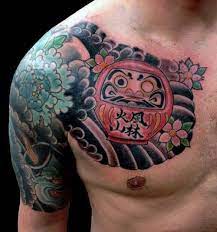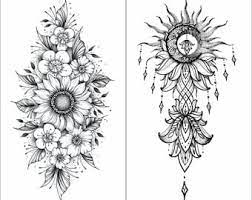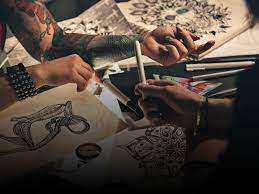
Introduction
Traditional Japanese tattoos, known as irezumi, have a rich tradition and convey concepts such as good luck, aspirations, and beliefs.
Colors and Their Symbolic Meanings
– Blue symbolizes faithfulness and good fortune.
– Red represents passion and vitality.
Symbols in Traditional Japanese Tattoos
– Warriors and geisha are common symbols.
– Mythological figures like Tengu and Oni may also appear.
Symbolism of Cranes
Cranes symbolize longevity, beauty, hope, healing, and rebirth. When combined with bamboo, they represent growth and resilience against storms.
Symbolism of Lion (Komainu)
The lion symbolizes courage, strength, power, and bravery. It is believed to protect against illness, misfortune, and death.
Symbolism of Dragons
Dragons represent power and strength. They convey a sense of dynamism.
The symbolism of Koi Fish
Koi fish symbolize luck, success, and perseverance. They serve as an inspirational reminder to overcome obstacles.
Symbolism of Flowers
– Roses symbolize love and passion.
– Chrysanthemums and peonies represent beauty, elegance, wealth, and good fortune. They also symbolize purity, femininity, and fragility.
– Chrysanthemums symbolize perseverance and loyalty.
– Different colors of chrysanthemums convey different messages, such as love, hope, joy, and romance.
Symbolism of Geisha
Geisha are female entertainers. They symbolize femininity, spring, health, and beauty. Combined with bamboo or chrysanthemum flowers, they represent simplicity, perfection, longevity, happiness, or joy.
The symbolism of Koi Fish (Continued)
Koi fish symbolize Japanese perseverance in times of hardship and overcoming obstacles. They are often combined with symbols like bamboo or flowers for added significance.
Symbolism of Tigers
Tigers represent strength, power, courage, and protection from disease and evil spirits. They often appear alongside dragons to symbolize duality.
Oni and Yokai Symbolism
Oni, considered demons, are commonly depicted in tattoos. They can represent both sinister and good spirits, serving justice when necessary. Yokai refers to supernatural creatures, like Oni, which punish wrongdoings.

